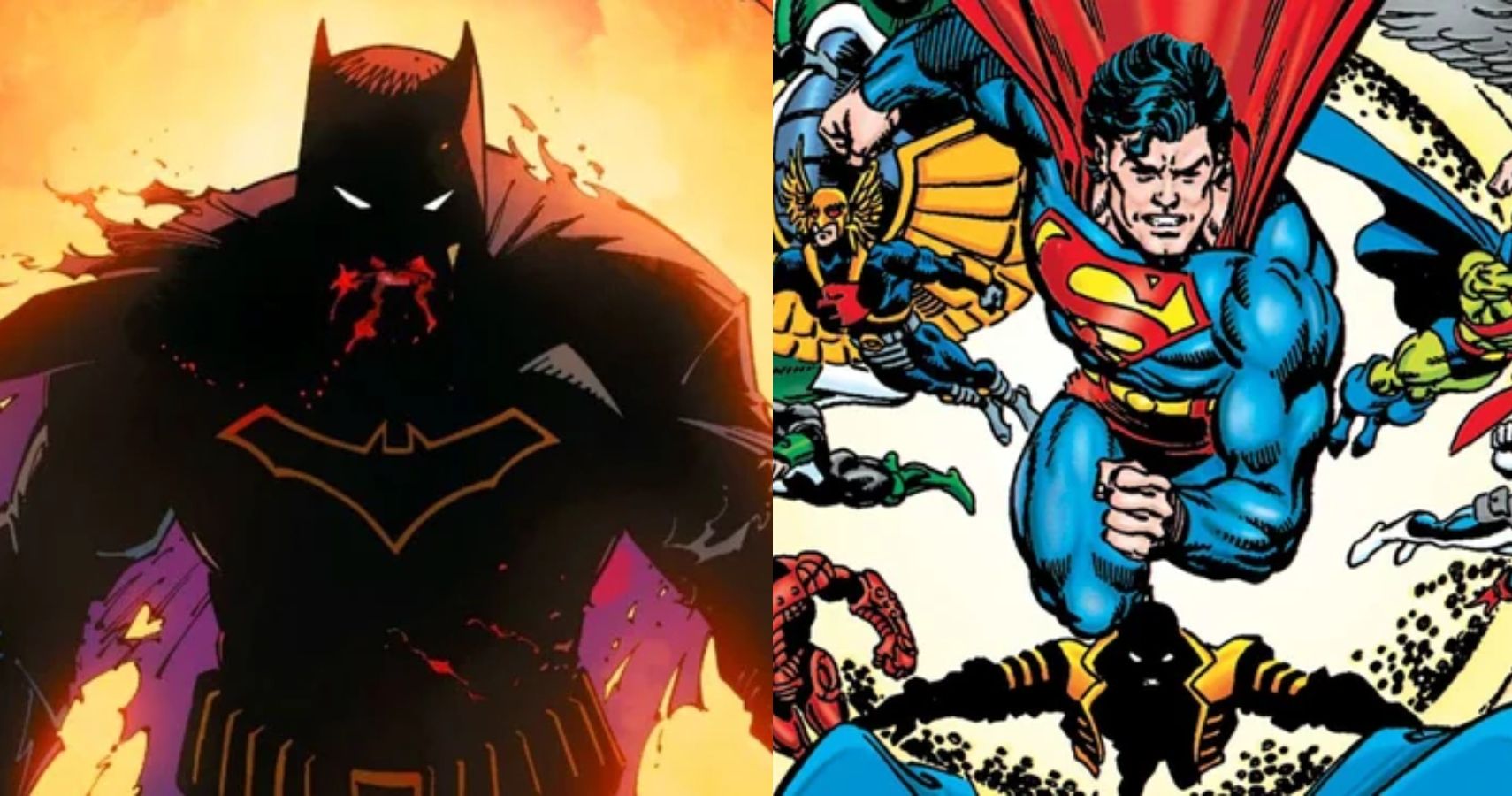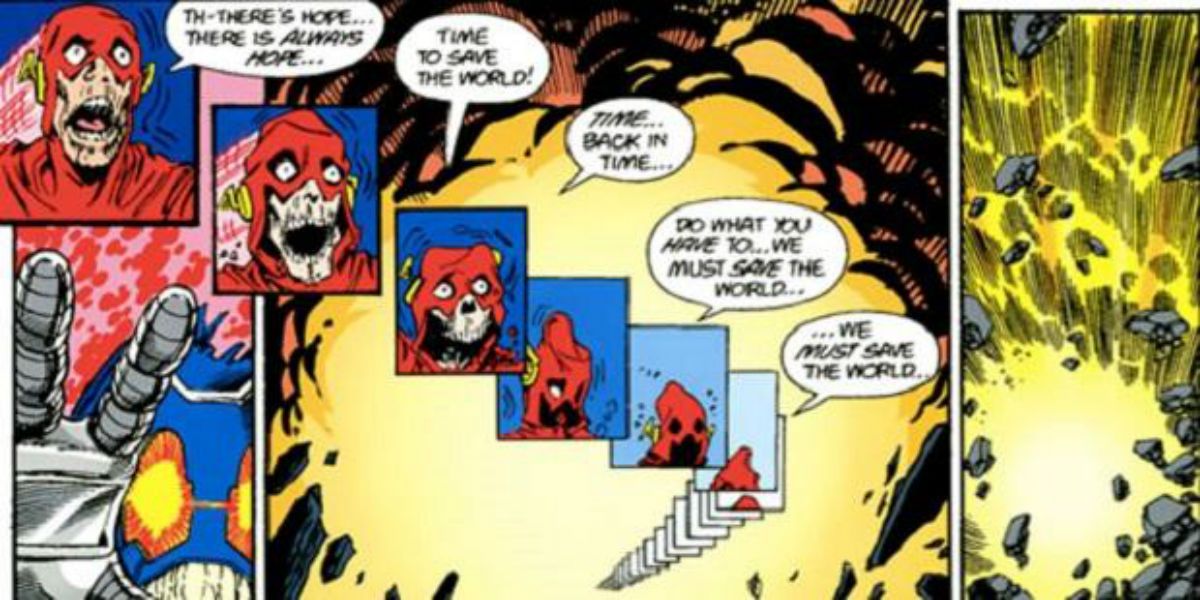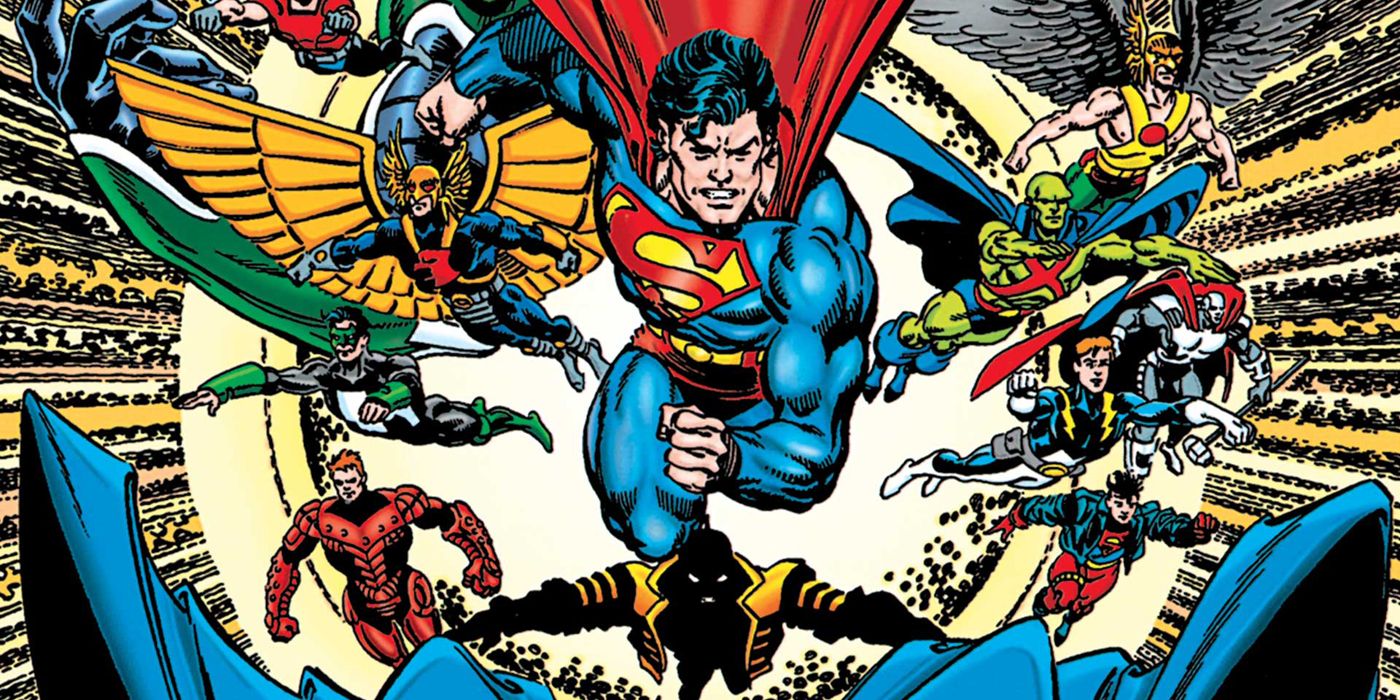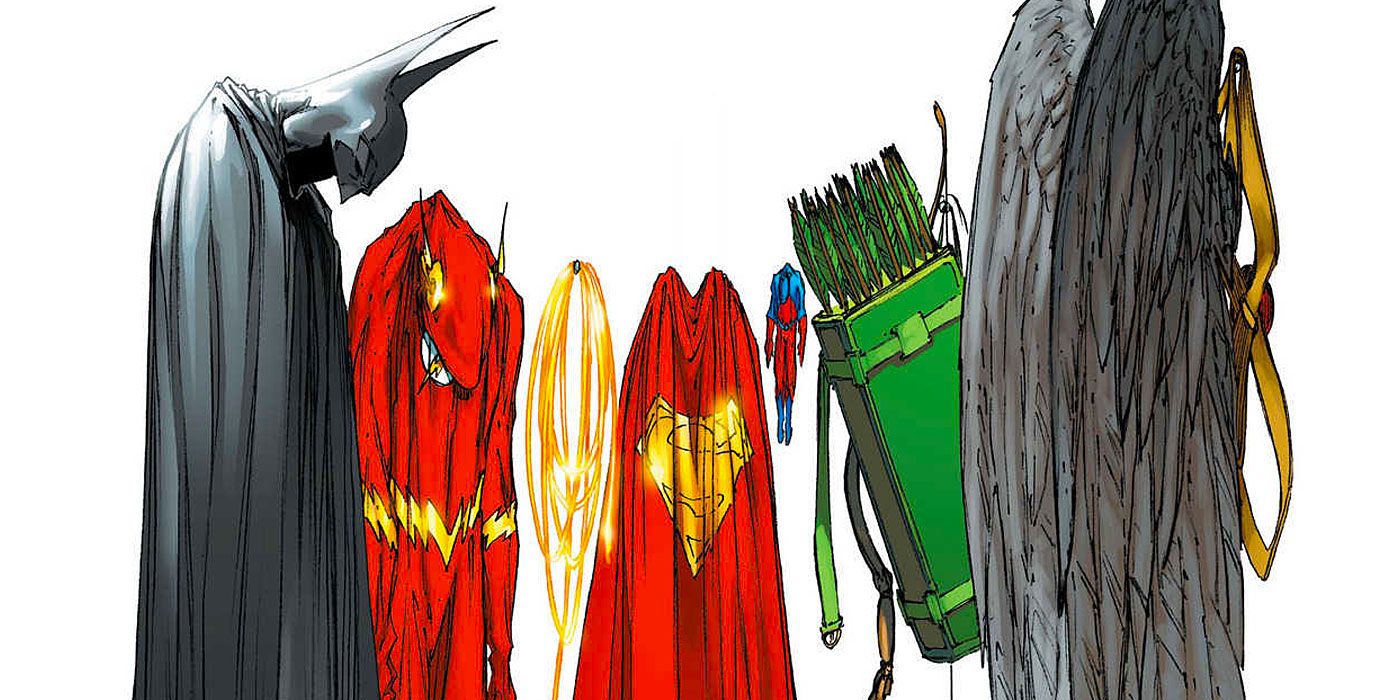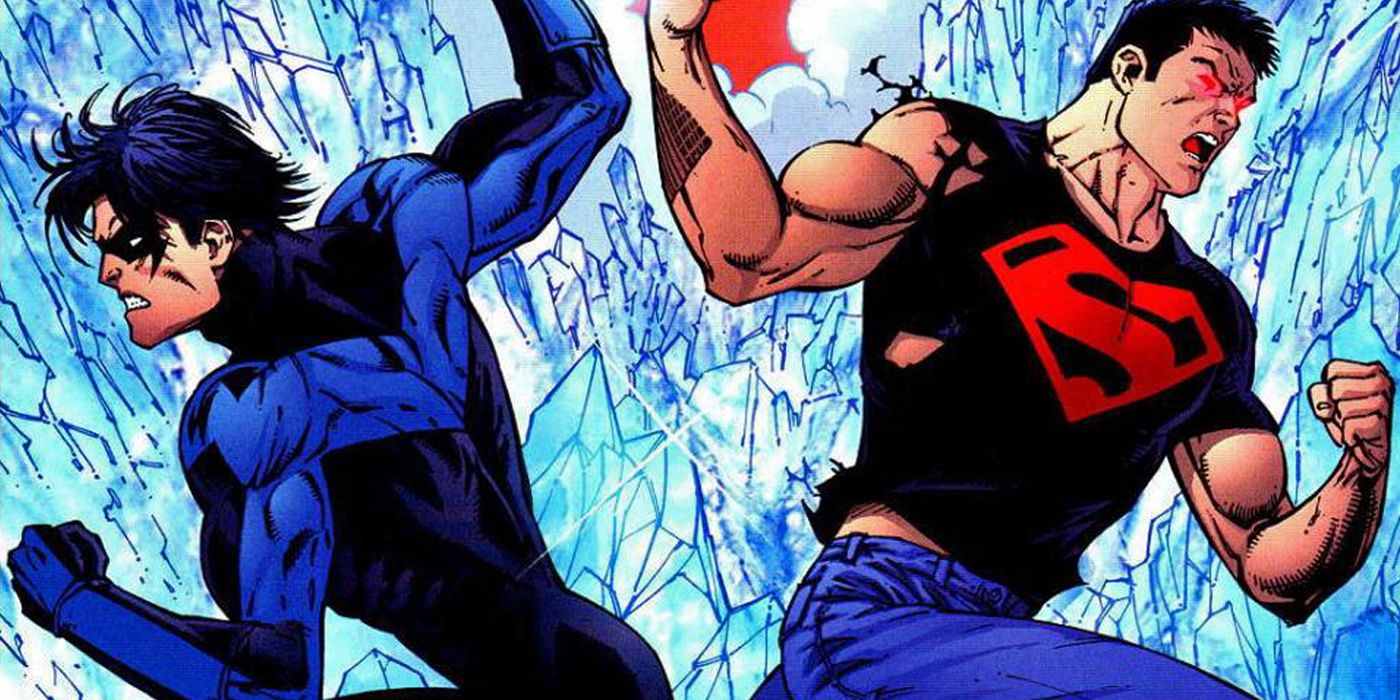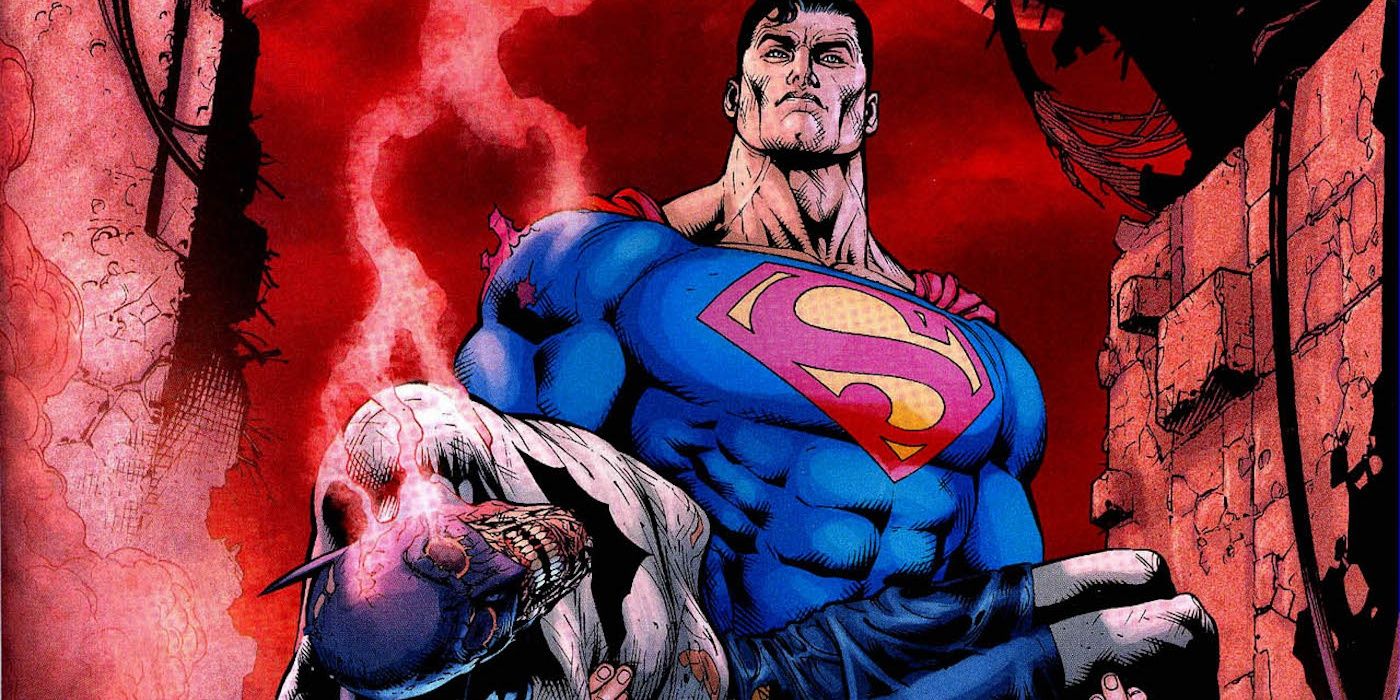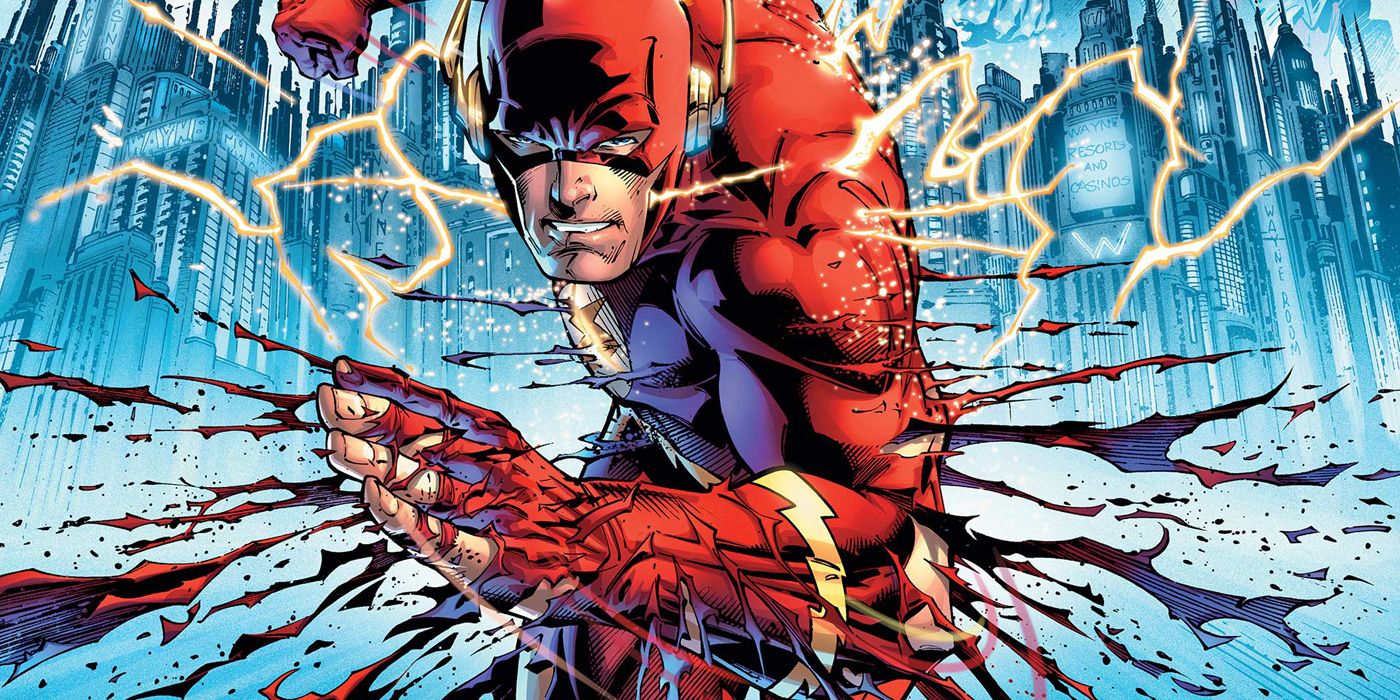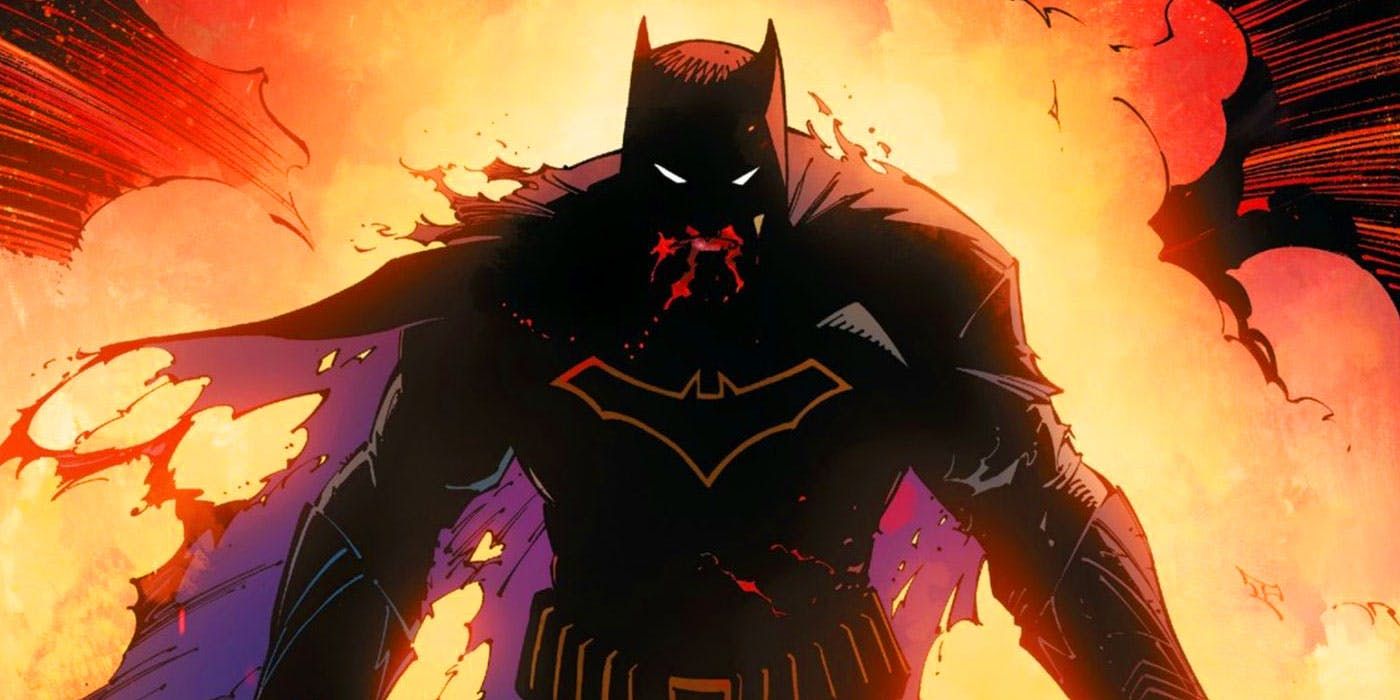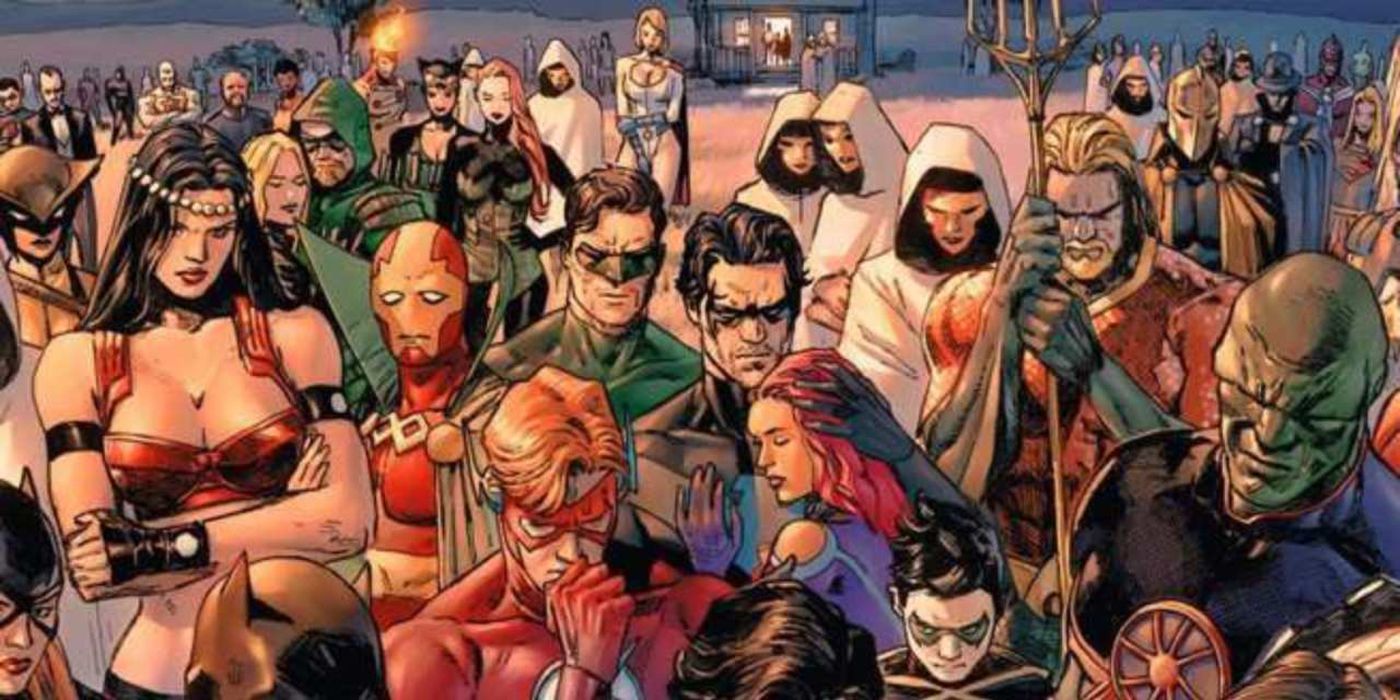Every time DC publishes an event that shakes things up for the entire universe, it seems as though the word “Crisis” is in the title. While this isn’t always the case, there are several characteristics that are typically associated with a Crisis event. At the moment, there are seven events to hold an official standing as a Crisis (according to Brian Michael Bendis), and two others that come close. Though they all feature varying degrees of stakes, characters, and consequences, it can be kind of confusing to follow along on key events that are this big.
To help narrow things down a little, here is our list of every major DC Crisis, ranked by chronological order.
9 Crisis On Infinite Earths
As the original Crisis event, Crisis On Infinite Earths set the standard for all others that would come after it. Not only did the miniseries feature an incredibly wide cast, multiple dimensions, and incredibly high stakes, but it succeeded in rebooting the entire DC Universe as fans knew it.
Following the events of Crisis On Infinite Earths, the entire history of the DC Universe had been rewritten. For example, Superman got a much more streamlined origin story, Jason Todd was no longer a direct ripoff of Dick Grayson, and the Golden Age superheroes no longer resided on another Earth. The status quo for the DC Universe following this story was very well received, and would remain the status quo until 2011.
8 Zero Hour: Crisis In Time
While Crisis On Infinite Earths served as a hard reboot for the whole universe, Zero Hour: Crisis In Time served as an attempt to give the DC Universe a better timeline. Essentially, after Hal Jordan falls victim to the influence of Parallax, the Justice League and other heroes must band together to stop him.
The final result did change some events, but not to the same extent that Crisis On Infinite Earths did. Furthermore, after an official timeline of key DC events was released, there were still a few things that didn’t quite make sense. While the story itself is worth a read, the results didn’t exactly do as much good as was intended.
7 Identity Crisis
For years, another Crisis event wouldn’t be released. Eventually though, novelist Brad Meltzer would join the DC Universe for Identity Crisis. Unlike the two before it, Identity Crisis didn’t threaten the entire universe. Instead, major secrets between members of the Justice League are discovered after someone finds a way to murder one of their own.
Instead of involving heroes from other dimensions, time travel, or anything of the sort, Identity Crisis is a much more grounded take on the DC Universe, looking at the heroes in a unique way and raising a lot of questions about morality. While some fans are divided on the overall quality of the story, it still managed to have a lot of repercussions as a result of the aftermath. Though the series didn’t reboot anything, it still altered the direction of several key DC titles.
6 Infinite Crisis
Shortly after Identity Crisis concluded, Infinite Crisis began to hit the shelves. Strictly speaking, it is actually a sequel to Crisis On Infinite Earths, though it can still be read as a standalone book. Likewise, Infinite Crisis had very little effect on the DC Universe after it concluded.
One of the biggest impacts the book had was establishing Superboy Prime as a major DC villain and killing off Conner Kent Superboy. While it was incredibly sad to see Conner sacrifice himself, no changes to continuity were made as a result. Instead, the entire DC Universe jumps one year into the future, leaving it up to the individual series’ to explain what happened to their characters during that time.
5 Final Crisis
Not long after Infinite Crisis ended, Final Crisis began to shake things up for the DC Universe. Essentially, Darkseid finally acquires the anti-life equation and uses it to take over the Earth. From there, it is up to Superman and the remaining heroes to stop him before he plunges the planet into the Dark Multiverse.
While the stakes were certainly high throughout the story, it is most recognized for killing Batman. Though it is later revealed that Batman was actually still alive, Bruce Wayne remained absent from the DC Universe for about a year while Dick Grayson stepped into the role. Considering the scale of the story itself, it is definitely worthy of calling itself a DC Crisis.
4 Flashpoint
Flashpoint is actually the first Crisis event to not have “Crisis” in the title. Though it may not carry the name, it does have many of the same characteristics as the other Crises before it. After Barry Allen travels back in time to save his mother, he accidentally sets off a chain reaction that completely reshapes the entire DC Universe.
Thomas Wayne is now Batman, Superman was found by the government instead of the Kents, and Aquaman and Wonder Woman are at war with each other. Though eventually everything is “fixed,” time travel remains a central focus of the book. Likewise, much like Crisis On Infinite Earths, Flashpoint completely rebooted the entire DC Universe once again. In creating the New 52, Flashpoint rewrote a lot of DC canon and restructured the timeline. Though it created several continuity issues, Flashpoint itself remains an incredibly well-written story.
3 Convergence
Like Flashpoint, Convergence is a Crisis due to its themes and scale within the DC Universe, rather than in name. In regards to the story, Telos, a new villain similar to Brainiac, collects key DC cities from around the multiverse and forces them to fight each other to claim their right to survive.
While it initially seemed to briefly resurrect many popular alternative takes on DC characters, Convergence actually failed to wow readers. The series itself focused heavily on the characters from Earth 2, rather than the main DC Universe leaving many readers confused as to who was who and the events that led there. Overall, Convergence managed to have a scale worthy of a crisis but is easily the weakest of all the others.
2 Dark Nights: Metal
On a much more successful note, Dark Nights: Metal was a very Batman-focused event involving time-travel, other Earths, and many other elements common within a Crisis event. After Batman is manipulated into opening a portal to the Dark Multiverse, many evil versions of himself emerge and take over the main DC Universe.
Considering the impact that Batman had on this story, it is easy to see why it was so well-received. Likewise, the series continues to have lasting effects in the DC Universe today. The Batman Who Laughs has especially been a widely popular character and his influence continues to haunt Batman and other heroes.
1 Heroes in Crisis
As the most recent Crisis event, Heroes in Crisis actually falls more in line with Identity Crisis. In this sense, it is smaller in scale, and takes a much more personal look at superheroes in the modern era.
However, like Identity Crisis, Heroes in Crisis proved to be rather controversial, due to the identity of the murderer. Aside from the twist, the series is actually an excellent representation of mental health trauma, especially for people who experience violence on a day-to-day basis. While it may not be everyone’s favorite read, it is still worth checking out.

